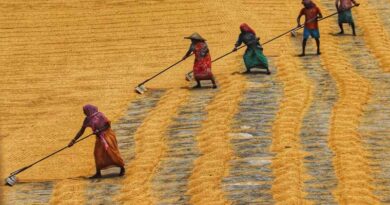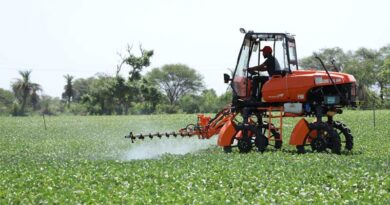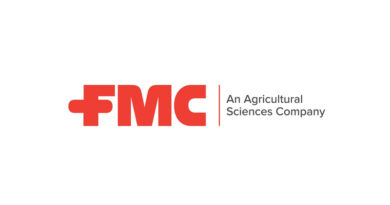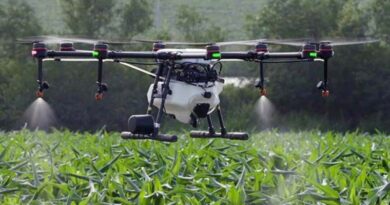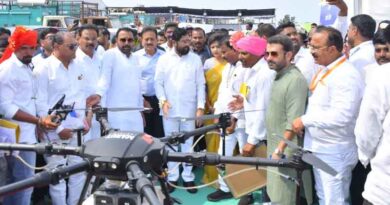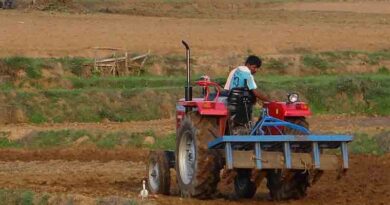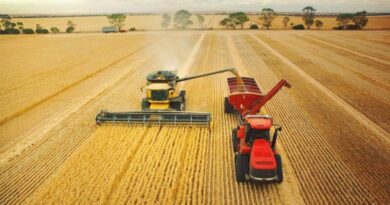Mechanization & Technology: Empowering Farmers Globally and in India
By Nimish Gangrade, Editor, Global Agriculture (The article was originally published in Global Agriculture)
10 January 2024, New Delhi: Mechanization and technology have revolutionized the agricultural landscape, empowering farmers to enhance productivity and improve their yields. Regardless of the size of their landholding, farmers worldwide are embracing mechanization and technology to optimize their farming practices.
We explored global and Indian perspectives on how farmers are leveraging these advancements to boost agricultural productivity, with a particular focus on the recent adoption of drones and the continued significance of the tractor industry.
Mechanization & Technology: A Global Perspective
In recent years, the global agricultural sector has witnessed a significant surge in the adoption of mechanization and technology. From developed nations to emerging economies, farmers are recognizing the potential of advanced machinery, precision equipment, and digital solutions to streamline operations and maximize output. The availability of innovative tools and equipment has opened up avenues for farmers to optimize their resources, increase efficiency, and reduce manual labor.
In countries like the United States, Canada, and Australia, large-scale mechanization has been a prevalent practice for decades. Farmers in these regions utilize state-of-the-art machinery, such as combine harvesters, planters, and boom sprayers, to carry out various farming operations efficiently. This has led to increased productivity, reduced dependency on labor, and improved overall farm management.
Indian Perspective: Embracing New Tech
India, with its diverse agricultural landscape and vast farmer population, has been quick to embrace both machinery and technology. Regardless of landholding sizes, farmers across the country are leveraging these advancements to transform their farming practices. This paradigm shift has been instrumental in minimizing labor-intensive tasks, improving efficiency, and ensuring sustainability.
Historically, the perception existed that mechanization was limited to large-scale farming operations due to the high cost of machinery. However, with the advent of compact and affordable equipment, even small and marginal farmers can now adopt mechanization to optimize their farming processes and enhance productivity.
Handheld tools, power tillers, and miniaturized machinery have become accessible to farmers with smaller landholdings, allowing them to mechanize tasks such as tilling, seeding, and harvesting.
The recent use of drones in agriculture has opened up new possibilities for Indian farmers. Drones equipped with advanced imaging technologies, sensors, and GPS capabilities offer valuable insights into crop health, irrigation needs, and pest management. They empower farmers to make informed decisions, optimize resource allocation, and implement targeted interventions. Drones are particularly beneficial in areas with challenging terrains or large-scale farms, where monitoring and managing crops manually can be time-consuming and labor-intensive.
However, it is important to note that while technology plays a vital role, its successful adoption depends on factors such as farmers’ awareness, access to information, and availability of support infrastructure. Efforts are being made by the government, agricultural institutions, and private organizations to promote awareness and provide training on the use of mechanization and technology to farmers across India.
The Role of the Tractor Industry
In 2021, the global tractor market was valued at almost 56 billion U.S. dollars. It is projected that by 2027, the size of this market will increase by a compound annual growth rate of 3.7 percent, reaching nearly 69 billion U.S. dollars as per a report by Statista. The tractor industry has played a pivotal role in the mechanization of agriculture globally, and India is no exception. Tractors have been a driving force behind mechanization, enabling farmers to plow fields, sow seeds, and harvest crops efficiently. With continuous advancements in technology, tractors have become more versatile and specialized, catering to the specific needs of different farming operations. The tractor industry remains a vital component of the mechanization ecosystem, supporting farmers in their pursuit of increased productivity and profitability.
The Indian tractor market is the fastest-growing market in the world. The Indian tractor industry has enjoyed a successful fiscal year 2022–23. Seven of the 14 major Indian tractor manufacturing brands experienced double-digit growth in the past year with 9,12,061 tractor units sold in the domestic market. The sector expanded by 8% in the fiscal year 2022–2023, and if current growth rates hold, it will surpass the 1 million unit milestone by 2025. Tractors in India are now available in various sizes and power capacities to cater to the diverse needs of farmers across different regions and crop types. The introduction of advanced telematic features such as GPS guidance, precision farming capabilities, and compatibility with implements has further enhanced the efficiency and effectiveness of tractors in agricultural operations.

In 2022-23, India exported a total of 1,31,850 tractors, displaying its manufacturing capabilities and cost competitiveness. This growth can be attributed to continuous innovation, technological advancements, and the ability to cater to varying farm sizes and requirements. The major destination for export of tractors is USA (25.2%), Nepal (7.3%), Bangladesh (6.5%), Thailand (5.4%) & Sri Lanka (5.3%). The export of agricultural implements, such as harvesters and planters, has also witnessed substantial growth, aiding in the mechanization of farming practices globally.

Boom Sprayers and Drone Technology
Another notable advancement in mechanization is the introduction of boom sprayers and the use of drones for agrochemical applications. Manual labor-intensive spraying processes have been replaced by boom sprayers and drones, significantly reducing time, cost, and labor requirements. The precise and efficient application of agrochemicals enabled by these technologies minimizes wastage and ensures targeted coverage, leading to improved crop health and enhanced productivity.
As per a report by Allied Market Research, the global agriculture drone market is projected to reach $5.89 billion by 2030, registering a CAGR of 22.4% from 2021 to 2030. Drones can be used to carry out several agricultural tasks like spraying pesticides, assessing soil health, crop nutrition, monitoring, and analyzing field moisture, etc. Additionally, the use of drones for spraying has gained momentum due to their ability to access difficult-to-reach areas and cover large-scale farms effectively. Drones equipped with sprayers can precisely and efficiently apply agrochemicals, reducing the risk of human error and optimizing resource utilization.
Grand Research Store, a global research organization estimates the global boom sprayers market to reach US$ 3303 million by 2029.
Boom sprayers mounted on tractors provide uniform spraying of agrochemicals across the fields, saving time and reducing the dependency on manual labor.
The use of boom sprayers has penetrated small land holdings of India with a fleet of more than 10 thousand across the major agriculture states in the country. Agrochemical companies have taken the lead and have deployed their fleet of boom sprayers which uses an advanced booking mechanism to avail service for a nominal fee charged to the farmer.
Mechanization and technology have transformed the agricultural landscape globally, including in India. Farmers, irrespective of their landholding sizes, are harnessing the power of mechanization and technology to optimize their farming practices and boost productivity. The advent of drones, coupled with the continued significance of the tractor industry, has further revolutionized agricultural operations. With ongoing advancements, the future of mechanization and technology in agriculture holds immense promise, empowering farmers to overcome challenges and achieve sustainable growth.
Also Read: UPL to strengthen fungicide portfolio with acquisition of Corteva’s Mancozeb business
(For Latest Agriculture News & Updates, follow Krishak Jagat on Google News)


